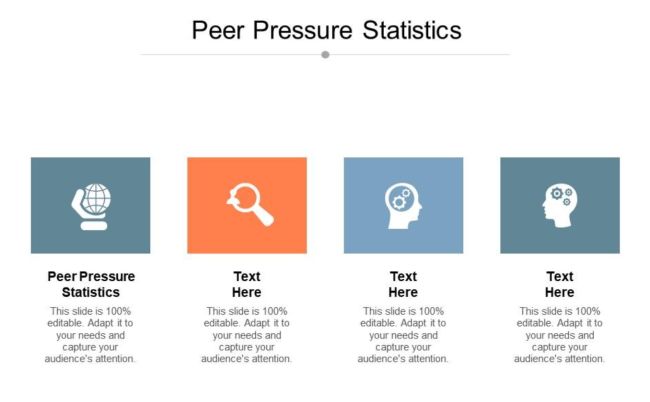It is common for parents to lose influence over their children when they start school. When teenagers are navigating finding their identity and figuring out their roles, peers are the most influential group. It is unfortunate that teenagers who choose the wrong peer groups often find themselves in trouble.
Teens and Peer Pressure
One study conducted by Parent Further found that only 10 percent of teenagers reported not being influenced by peer pressure. Two-thirds of teenagers agreed that giving in to peer pressure improved their social standing, and nearly half admitted to picking on someone after their friends did.
Peer Pressure With Drug and Alcohol Use
Statistics on teen peer pressure can be downloaded here
Peer pressure is one of the biggest concerns when it comes to drug and alcohol use. Peer pressure may influence teenagers to engage in drinking and drug use, even if parents have taught them the dangers. According to the facts:
- Among those between the ages of 12 and 17, “my friends smoke” and “I thought it was cool” are the most common reasons for smoking.
- 70 percent of teens who smoke have friends who smoke or started smoking because of peer pressure, according to the Canadian Lung Association.
- Two-thirds of 10th graders and two-fifths of 8th graders have tried alcohol, according to the Underage Drinking Research Initiative.
- According to the Monitoring the Future Survey from the same initiative, approximately 30% of 8th graders have used illicit drugs.
- As a result of the survey, three conclusions were drawn regarding peer pressure and drug and alcohol use:
- The likelihood of teens doing drugs and drinking alcohol is higher when they have friends who do so.
- Teenagers who drink alcohol and use drugs are more likely to encourage their friends to do the same.
- The likelihood of teens seeking out other teens who do drugs and drink alcohol is higher if they do drugs and drink alcohol.

Peer Pressure and Sex
The pressure teenagers face to give in to their sexual desires is as great as the pressure to find their identity and acceptable roles. According to a study by the Kaiser Family Foundation:
- Approximately one third of teenage males feel pressured to have sex by their friends.
- Women feel pressured to have sex by their friends 23 percent of the time.
- 44% of teens want more information about coping with sex pressure and knowing when to start.
- 46 percent of parents have not discussed with their teens how to deal with sexual pressure.
Peer Pressure and Driving
In a survey conducted by the insurance company Allstate, 89 percent of teenagers said their parents were the most influential on their driving habits. According to the same study, peers still have a strong influence when it comes to driving. In the survey, it was found that:
- Teenagers who drive without friends are 44 percent more likely to do well on the road.
- It is estimated that 56 percent of drivers talk on their cell phones while driving.
- The number of drivers who text while driving rose to 13 percent.
Peer Pressure and Self-Harm or Suicide
Teenagers can sometimes harm themselves through cutting or other dangerous fads or commit suicide as a result of peer pressure.
- Teenagers with friends who self-injure are more likely to self-injure too, according to Mayo Clinic research.
- Bullying often leads to suicidal thoughts in children and teens, according to a Yale School of Medicine study.
Positive Peer Pressure
Peer pressure does not always mean bad peer pressure. Teenagers are more likely to listen to positive messages from their peers, according to organizations like the Red Cross, which uses peer educators to teach safe sex to teens.
Middle schoolers can be influenced to make positive choices by older teens who don’t use drugs or alcohol, according to the National Association of Independent Schools.
What You Can Do
Despite your son or daughter’s desire to be on their own, you try to hold on, which causes frustration and resentment. When it comes to peer pressure, however, you don’t have to argue with your adolescent. You and your child can get through this tough time by following these steps:
- Maintain open lines of communication
- Provide support and advice without judging
- You have to pick your battles
- Getting to know their friends
- Issues to discuss
- Establish healthy boundaries
A parent’s reputation for being strict or being a “bad guy” isn’t earned easily. You may need to step in with discipline if you suspect your teenager is engaging in deviant behavior. You have the responsibility of providing consequences to some young adults before the law does, since they won’t learn without them.
Don’t forget to fit the crime with the punishment, and explain the reason for the grounding or whatever discipline you decide to impose. It will help your young adult transition into a responsible and law-abiding adult by teaching them responsibility for their actions.
